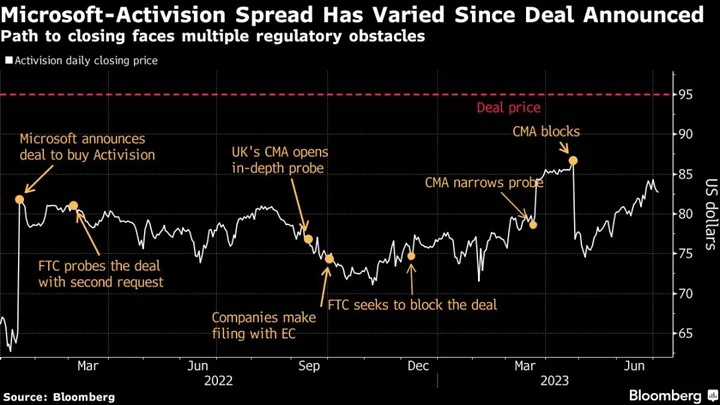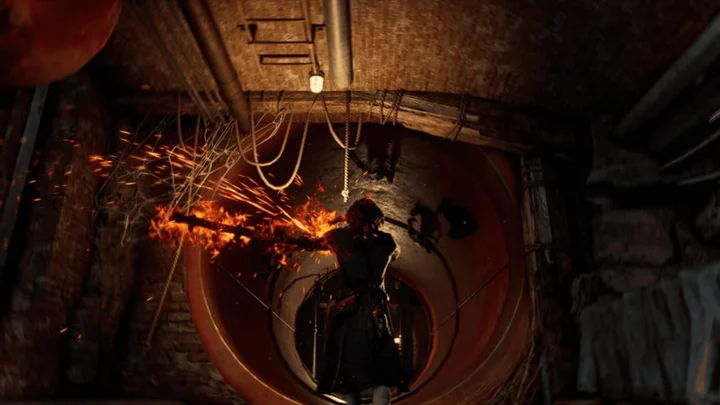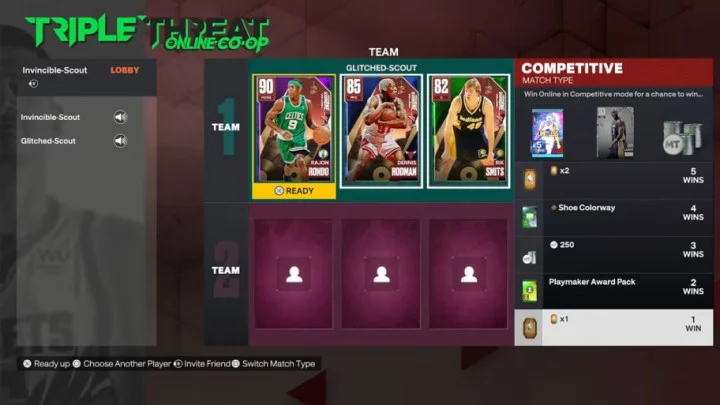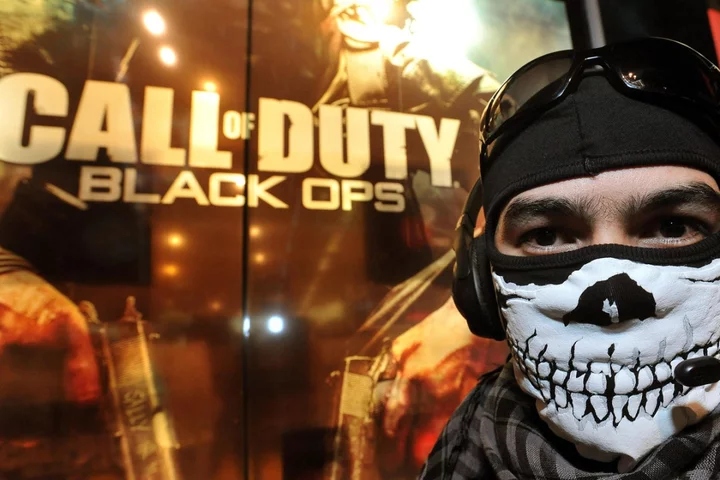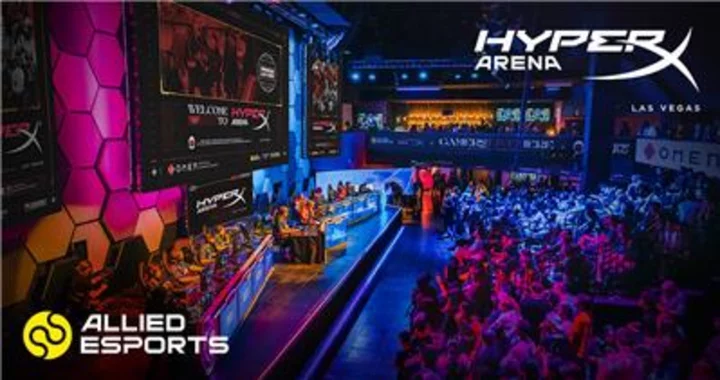Among the lawyers, litigants and spectators who packed into a San Francisco courtroom last month for a hearing on the fate of the biggest video gaming deal ever was another breed altogether: the merger arbitrager.
Portfolio managers and analysts from a handful of top investment firms, as well as specialized brokers who bet on whether mergers will go through, flew in from New York and Chicago. They were there to watch for signs — a grimace from the judge, a goof by a key witness — that the US Federal Trade Commission would succeed or fail in its bid to temporarily block Microsoft Corp.’s proposed $69 billion takeover of Activision Blizzard Inc. while the agency pursues an administrative challenge to it.
“This trial is a key event in the arbitrage community,” Brian Lombardi, a New York-based broker at FBN Securities, said on the sidelines of the hearing. “Everyone wants to understand the outcome. If the preliminary injunction is granted, the deal is likely dead.”
Lombardi was joined in US District Judge Jacqueline Scott Corley’s 19th-floor courtroom by representatives of firms including Balyasny Asset Management, Citadel Enterprise Americas, Pentwater Capital Management, TIG Advisors and United First Partners. The group, numbering a dozen or so, often grabbed spots in the first three rows of the public seating area. Some paid line sitters $30 to $40 an hour to keep their place. Scores of their counterparts followed the courtroom action on a Zoom audio feed.
Merger-arbitrage investors profit from the deal spread that arises when acquisitions are announced — the difference between the offer price and the stock price, reflecting the prospect of success and the risk of failure. Monitoring legal proceedings that can make or break major tie-ups is a standard part of their job, but has become especially fraught under FTC Chair Lina Khan, the most aggressive trustbuster the US has had in decades.
Read More: Lina Khan Is Upending Wall Street’s Merger-Arbitrage Playbook
The mammoth Microsoft-Activision combination would reshape the lucrative video game industry and, more broadly, test the FTC’s ability to block tech deals in court. How Corley rules, and the language of her ruling, could swing portfolio values by tens or even hundreds of millions of dollars.
And with a July 18 deadline for the deal to close, she is expected to rule soon.
Since the transaction was announced in January of last year, the gap between Activision’s price and Microsoft’s $95-a-share takeover bid has fluctuated along with regulatory updates, with the shares sinking almost to $70 in November and then gradually climbing back.
Tech Watch: Activision Traders See More Microsoft-Driven Gains
Should the deal close, buying Activision at Friday’s closing price of $82.43 would mean a 16% gain. Many arbitragers could realize even bigger gains with positions they built at lower prices last year. It has been one of the most popular arbitrage positions, attracting experienced players like Warren Buffett’s Berkshire Hathaway, Pentwater Capital and Arrowstreet Capital, according to filings data at the end of the first quarter compiled by Bloomberg.
The outcome will also help arbitragers assess the regulatory landscape for big tech M&A going forward. The first half of the year has been tough for this corner of the market, which is being upended by Khan’s antitrust scrutiny of blockbuster deals from pharmaceuticals to big tech.
By the end of the hearing, a consensus had emerged among the arbs that the FTC was unlikely to win a pause on the Microsoft deal, just as it lost a challenge to an acquisition by Meta Platforms Inc. earlier in the year. During the two weeks of the proceeding, Activision gained almost $2.50 — from $81.89 on June 20 to $84.30 on June 30 — in a sign of increased market confidence.
“The FTC appears to lack a strategy,” Lombardi said. “Acting tougher is one thing, but taking bad cases to court and losing creates unfavorable precedents that put the FTC in a worse position than before she took the helm,” he said of Khan.
Read More: Microsoft Judge Grills Regulator on User Harm in Gaming Deal
FTC spokesman Douglas Farrar said the agency “only brings cases when the facts show that a proposed merger would stifle competition or create a monopoly.” When it acts, he said, “we do so firmly grounded in the law and decades of precedent, honoring our clear congressional mandate to prevent unlawful mergers.”
In one of the highest-profile deals last year, Twitter Inc. arbitragers endured a months-long roller-coaster ride in the stock as Elon Musk tried to back out of his takeover, ultimately agreeing to honor it just before the case went to trial. But the reward was huge for those who stuck around: Twitter shares fell roughly 40% below the offer at one point, providing huge upside to anyone betting the deal would close.
It was for a big payday from the Activision deal that traders showed up at the courthouse on foggy San Francisco mornings, despite having the option to listen to the audio stream. Traders say the advantage of being present is close observation of the judge, including body language that reflects skepticism (or boredom), as well as her exchanges with witnesses or lawyers that can offer clues to the outcome.
Read More: Microsoft CEO Says ‘Call of Duty’ to ‘100%’ Stay on PlayStation
Some arbitragers said they flew home on weekends to attend their kids’ sports activities, and tried to make it back in time for the next hearing. Sitting in court on hard wooden pews, they eagerly took notes that were then sent out as reports to colleagues and clients. Some who listened on the Zoom said they probably missed out on small yet significant details, like what figures Microsoft’s attorney wrote on a whiteboard in court as she questioned expert witnesses.
Nick Pappas, a New York-based analyst for Churchill Capital, who was on the audio feed, recalled hiring a line sitter for seven hours to hold a spot during the federal court hearing over the Justice Department’s challenge to AT&T Inc.’s $85 billion acquisition of Time Warner in 2018. For various reasons he couldn’t make it to San Francisco for this one, he said.
“Resource prioritization and schedule — what’s better worth your time?” Pappas said. “With Zoom you can do two things at once, staying on top of other breaking news. But investors with big enough positions will find it worth their time. Many arbs have legal backgrounds, so they can potentially benefit more.”
Read More: Microsoft Game Deal to Harm PlayStation, Sony Executive Says
US authorities aren’t the only ones who have expressed concern over the Activision deal. UK competition regulators vetoed it. Microsoft is appealing that decision.
Even if the FTC loses, the companies may choose to extend their July 18 closing deadline. Otherwise they might risk being forced to unwind the transaction by the UK or by a separate FTC challenge. The arbitragers may have to tune in to more proceedings to handicap how it will all play out.
“Part of an arbitrager’s job entails doing deep dives into sometimes arcane issues,” said Roy Behren, co-chief investment officer at Valhalla, New York-based Westchester Capital Management, who has managed merger arbitrage strategies for almost 30 years. He listened to the feed of the Microsoft hearing but also hired a lawyer to attend it in person.
“We have to cover a lot of bases,” he said.

